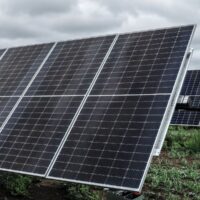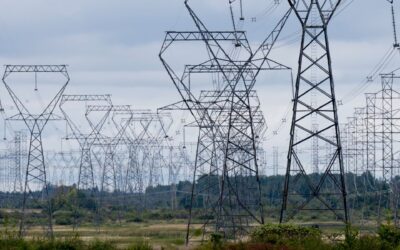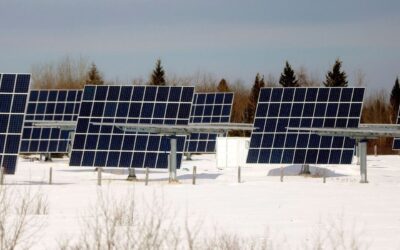This article was previously published in the Toronto Star.
Well, that was unpleasant.
He promised to roll back federal climate change initiatives, and on Day 1 of his presidency, Donald Trump delivered. Whether it was exiting the Paris accord, ending wind energy permits, or limiting some of the clean economy spending under the landmark Inflation Reduction Act, the incoming president unleashed a flurry of regressive orders aimed at denying the reality of the global energy transition that is now an inevitability.
Though some of these actions will undoubtedly be tested in court, such as his attempt to curtail the ability of states to regulate vehicle emissions, clearly these initiatives will delay and impair U.S. attempts to reduce greenhouse gas pollution
But progress will continue. Emissions in the U.S. will continue to decline, but at a slower pace. As opposed to Trump’s first term, the climate change discussion is now driven by other powerful factors that are outside of his control.
Here are four trends propelling climate change progress that will endure regardless the damage Donald Trump attempts to do:
- Public concern about extreme weather events: Devastating fires, such as we currently see in Los Angeles, and severe flooding—such as happened last summer in Quebec—are increasingly common. Over the past few years, more and more people have come to view climate change as a proximate threat to their health and the security of their communities. Does this mean that climate change is always at the top of people’s personal priority lists? Of course not. But extreme weather has permanently moved climate change out of an “environmental policy” pigeonhole into a far more potent public policy space occupied by such issues as health care and crime.
- Subnational action is intensifying: Even before the latest round of wildfires, California was determined to flex its muscles with emission reduction policy within the control of state-level government. You can say the same about New York, and New Jersey, and the other twenty-odd states that have banded together in the US Climate Alliance. In total, these states represent 60 per cent of the U.S. economy, and have jointly pledged to stay the course in terms of ambitious emissions reduction in the next decade. As in Canada, the U.S. federal system grants subnational governments substantial powers to regulate pollution.
- The economics of the net zero transition are inescapable: Oil consumption in China, to take one example, peaked in 2023 and is set to decline, in part thanks to the dramatic rise of EVs there. In fact, global EV sales set another record in 2024 and are expected to cut global oil demand by six million barrels a day by 2030. Global investment in clean energy like solar and wind was on track to hit $2 trillion last year, nearly twice the amount slated for fossil fuels, thanks to rock-bottom prices. In the first half of last year alone, solar photovoltaic prices dropped 20 per cent, for example. The cost of wind energy has seen a similarly dramatic decline, which is expected to continue apace.
- The new low-emission machines are simply better: I’m old enough to remember the transition from rotary dial phones to cellphones, from cassette tapes to streaming, and from pocket calculators to laptops. Sometimes, the new machines are simply better than the old ones. Every minute of every day, millions of consumers around the world are reaching this conclusion with respect to low-emission technology. Electric vehicles are just fun to drive. Their acceleration is off the charts and they handle beautifully. The vast majority of EV owners see big savings on fuel and maintenance compared to gas-powered vehicles. Given all this, not surprisingly, nine out of 10 EV owners in Canada say they will buy another. And when it comes to home heating, it turns out that non-polluting electric heat pumps are a winner: more than 80 per cent of heat pump owners are satisfied with their systems.
The fight for climate progress has never been easy. Certainly, the election of a climate change vandal south of the border complicates things. But the forces accelerating the net zero transition are now beyond even the U.S. President’s considerable powers to reign in.








